The central processing unit (CPU) is one of the most important components inside a PC. It's what handles all the calculations for just about everything you do on Linux or Windows and so the better the CPU you have, the more you'll be able to do. This guide showcases the best CPUs available right now from AMD and Intel, taking into account budget, performance, and value.
The best CPUs you can buy in 2023
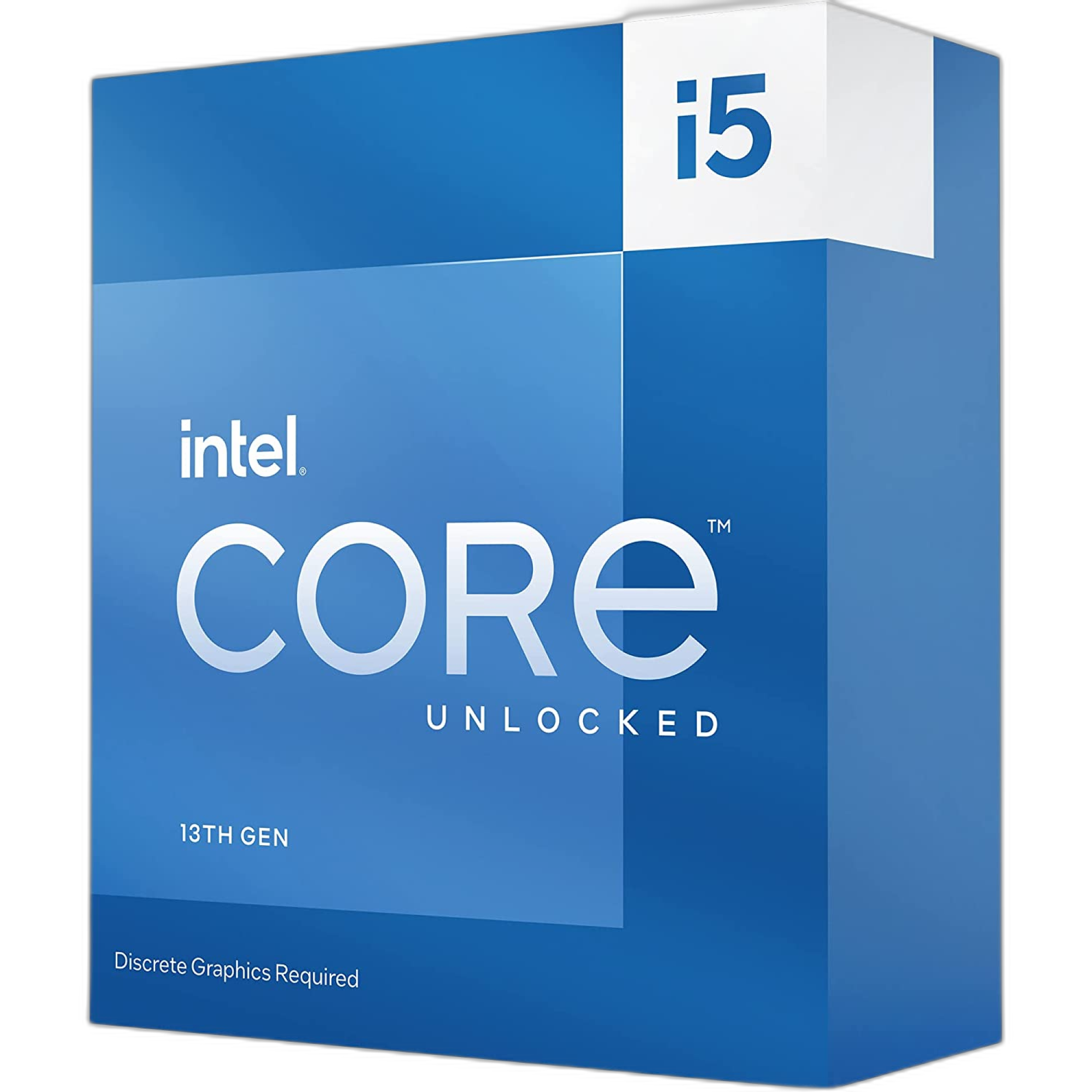
Intel Core i5-13600K
Our favorite CPU is from Intel's 13th Gen stack.
The Intel Core i5-13600K is the best value processor from Intel's 13th Gen family of chips. It strikes a good balance between performance and cost, allowing almost anyone to build a powerful system without destroying the tightest of budgets.
- Brand
- Intel
- Cores
- 6 / 8
- Threads
- 20
- Architecture
- Raptor Lake
- Process
- Intel 7
- Socket
- LGA 1700
- Base Clock Speed
- 3.50 GHz / 2.60 GHz
- Boost Clock Speed
- 5.10 GHz / 3.90 GHz
- Cache
- 24 MB
- RAM
- DDR5-5600 / DDR4-3200
- PCIe
- 5.0
- Graphics
- Intel UHD Graphics 770
- TDP
- 125 W
- Power Draw
- ~181 W
- Excellent value
- 14 cores
- Supports DDR4 and DDR5 RAM
- High power consumption
The Intel Core i5-13600K is one of Intel's most affordable Core processors from the 13th Generation, but it's also one of the best. It replaces its predecessor at the top of our list, thanks largely to Intel taking the same basic design and simply making it better. We loved the Core i5-12600K and the newer chip is better in almost every way. The Intel Core i5-13600K comes with 14 cores and 20 threads, effectively doubling the number of E-cores compared to the Core i5-12600K. This results in a total of 8 efficient cores (E-cores) and 6 performance cores (P-cores) for a total of 14.
All this performance on a chip with a default TDP of 125W. P-cores will always prioritize foreground applications, such as gaming, calling on the E-cores when required, or for background tasks. What all this means in simple terms is outstanding performance in lightly threaded tasks, such as gaming, and competitive performance in heavier, multi-thread workloads. For gaming, you'll only lose out on a few frames per second compared to an Intel Core i9, but you'll save on cost and power draw. It's also unlocked and can be pushed up to a maximum TDP of 181W.
However, if you also end up with an Intel Arc GPU such as the Intel Arc A770, the regular 13600K can use its iGPU in conjunction with the Arc to unlock features like Deep Link and Hyper Encode.
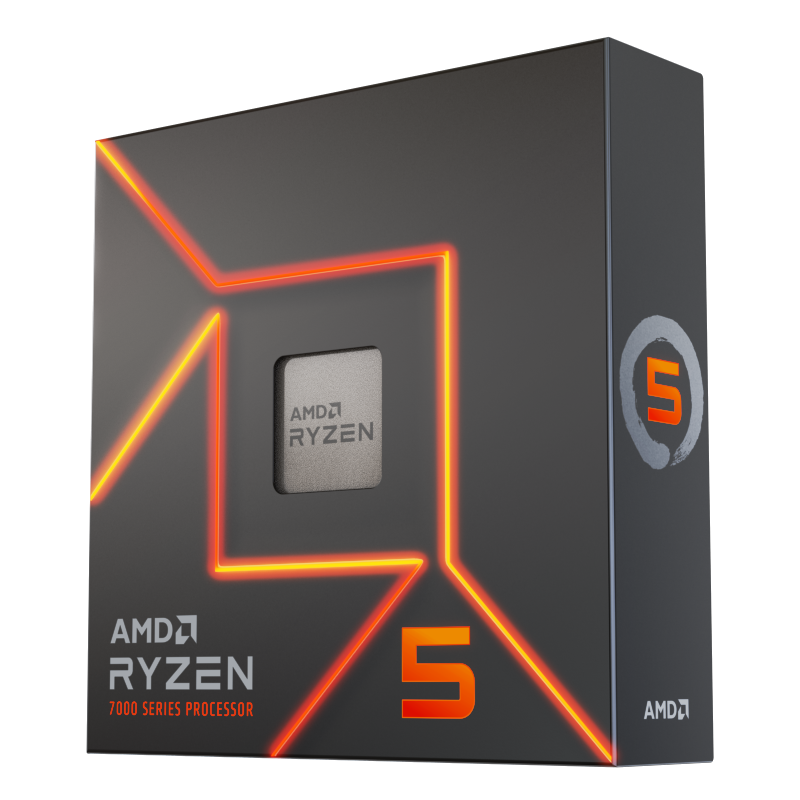
AMD Ryzen 5 7600
The best value processor from AMD is worth considering.
AMD's Ryzen 5 7600 is the new entry-level processor from the company, offering six-core performance at a more affordable price. Capable of boosting up to 5.1GHz, this 65W chip is a mighty package with an efficient architecture for a killer PC build.
- Brand
- AMD
- Cores
- 6
- Threads
- 12
- Architecture
- Zen 4
- Process
- 5nm
- Socket
- AM5
- Transistors
- 6.57 billion
- Base Clock Speed
- 4.5 GHz
- Boost Clock Speed
- 5.1 GHz
- Cache
- 33 MB
- RAM
- DDR5-5200
- PCIe
- 5.0
- TDP
- 65 W
- Excellent overclocking potential
- Better choice than the 7600X
- Lower TDP by default
- No DDR4 RAM support
- Included cooler isn't great
Intel isn't alone in offering excellent value processors at a reasonable price and AMD is here with the AMD Ryzen 5 7600. It's priced lower than the Intel Core i5-13600K and comes with far fewer cores and threads but these cores are considerably faster and you can overclock this 65W chip with ease. Just like the Core i5-13600K, the AMD Ryzen 5 7600 is one of the best processors in terms of value. The new Zen 4 architecture is built on a 5nm process, making the AMD Ryzen 5 7600 incredibly efficient. As was the case with previous AMD Ryzen 5 processors, you're getting six cores and 12 threads.
Unlike Intel's 12th and 13th Gen processors, AMD only supports DDR5 RAM with its Ryzen 7000 processors. This does mean you will need a new motherboard for the AM5 socket and DDR5 RAM if you're moving from an older system with DDR4 memory. And we're going to return to performance here as 38MB of total cache is fantastic for processing heavy loads. Remember those six cores? They can boost up to 5.1GHz, which is seriously fast and what you'd hope to achieve through overclocking in prior generations of CPUs.
The Ryzen 5 7600 is the stand-out of AMD's current range. Unless you're building a workstation or something that needs as many threads as possible, say for streaming or creative work, buying this one is a no-brainer.
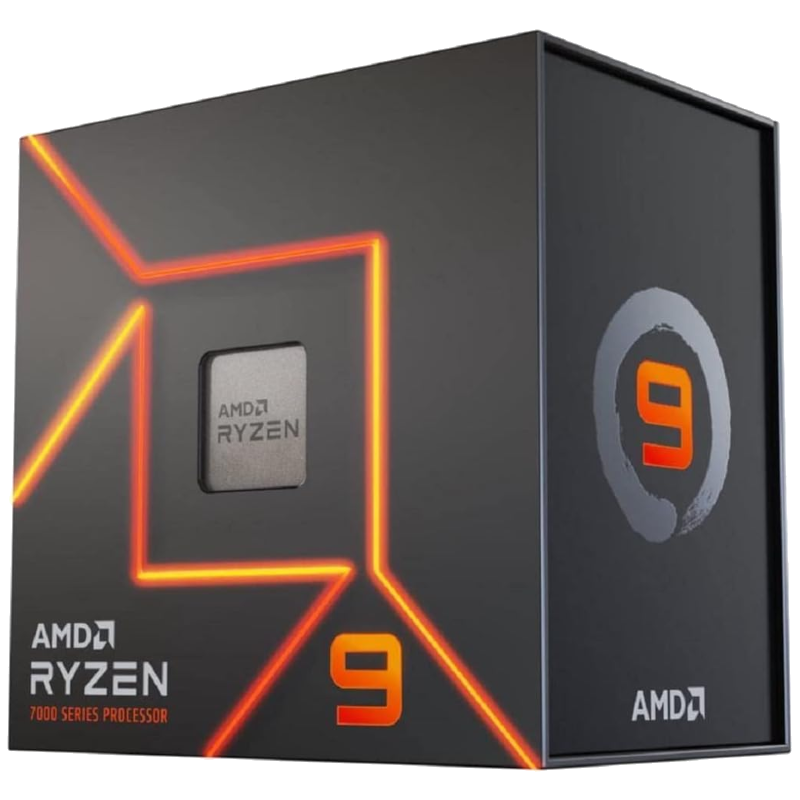
AMD Ryzen 9 7950X
For those who need a CPU for heavier software.
AMD's Ryzen 9 7950X is the flagship CPU of the Ryzen 7000 series, coming with 16 cores, 32 threads, and a 5.7GHz boost clock.
- Brand
- AMD
- Cores
- 16
- Threads
- 32
- Architecture
- Zen 4
- Process
- TSMC 5nm
- Socket
- AM5
- Base Clock Speed
- 4.5 GHz
- Boost Clock Speed
- 5.7 GHz
- Cache
- 81 MB
- RAM
- DDR5-5200
- PCIe
- 5.0
- Graphics
- AMD Radeon Graphics
- TDP
- 170 W
- Amazing multi-threaded performance
- 16 cores and 32 threads
- Relatively good performance per watt
- Requires a decent AIO cooler
- Only supports DDR5 RAM
AMD makes some of the most powerful processors in the market and the AMD Ryzen 9 7950X is about as good as you can get without entering enthusiast and workstation territories. Whilst Intel is moving to a hybrid core design, AMD is sticking to its more traditional guns and the Ryzen 9 7950X is about as traditional as you can get with a flagship processor. It has 16 physical cores and 32 threads of raw power. This processor isn't the best pick for gaming since 16 cores are largely overkill and most of them will remain idle in even the more demanding PC titles.
Where such a processor truly shines is in content creation, be that streaming or video editing. If you need a lot of cores for heavy tasks, this is the CPU for the job. Like the excellent AMD Ryzen 5 7600X, AMD will only be supporting DDR5 RAM here. It's impressive in use and can even take on Intel's Core i9-13900K even in single-core tests, which is something Intel used to score big on. Cooling may be a problem if you don't have a capable AIO liquid cooler at hand. The AMD Ryzen 9 7950X gets hot. Ultimately AMD has made a pretty meaningful update to the Ryzen family and its flagship model is going to be popular with creators.
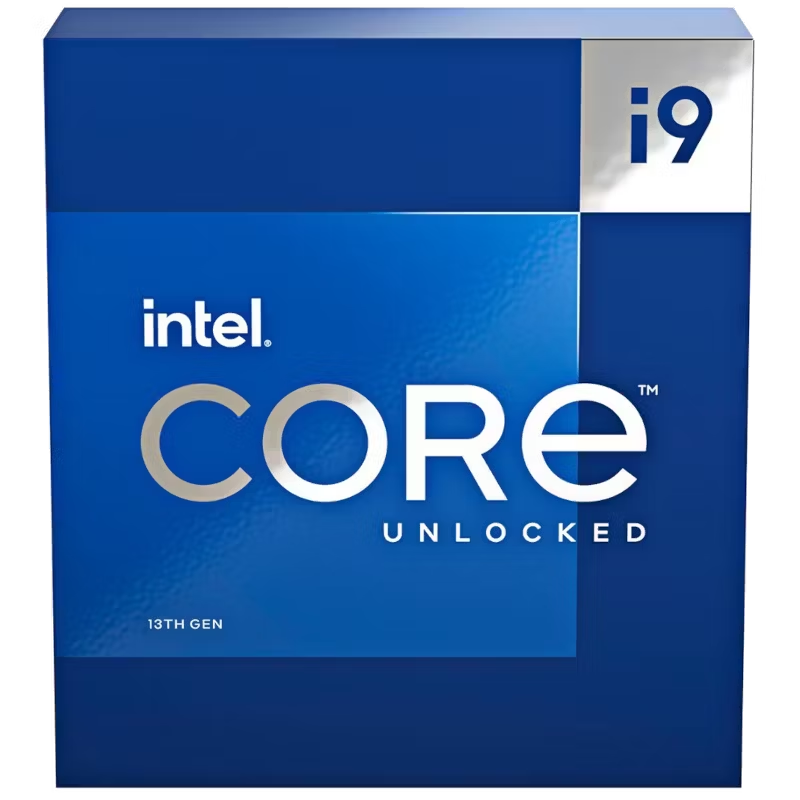
Intel Core i9-13900K
The CPU for those who want uncompromising performance.
Intel's newest range-topper is a 24-core, 32-thread monster that devours gaming and even the most demanding workloads.
- Brand
- Intel
- Cores
- 8 / 16
- Threads
- 32
- Architecture
- Raptor Lake
- Process
- Intel 7
- Socket
- LGA 1700
- Base Clock Speed
- 2.20 GHz / 3.00 GHz
- Boost Clock Speed
- 4.30 GHz / 5.80 GHz
- RAM
- DDR4-3200 / DDR5-4800
- PCIe
- 5.0
- Graphics
- Intel UHD Graphics 770
- TDP
- 125 W
- Power Draw
- 253 W
- Amazing performance
- 24 cores and 32 threads
- Supports DDR4 and DDR5 RAM
- Requires a decent AIO cooler
The Intel Core i9-13900K is Intel's flagship 13th Gen processor. It ticks a lot of boxes and is a good choice if you're building a PC that needs to operate at high tiers of performance. It's better in most cases to the AMD Ryzen 9 7950X but both CPUs often trade blows, making both a solid pick for a flagship PC build. Intel claims this to be the world's fastest gaming CPU, but we'd recommend lower-tier processors for gaming alone. Where this processor comes into play is for more intensive workloads. We're talking encoding, streaming, and other professional applications.
This processor has 24 total physical cores, eight of them being P-cores and 16 E-cores. This results in a total of 32 threads, offering plenty of channels for crunching data. This does mean the chip will draw more power and produce additional heat, but we'd always recommend a decent AIO liquid cooler for such a processor. While the clock speed of the Core i9-13900K falls short of the much more affordable Core i5-13600K, it's able to turbo boost all the way up to 5.8GHz. Overclockers have managed to take this even further with speeds in excess of 8GHz.
There's also 36MB of cache to play with and Intel includes support for both DDR4 and DDR5 RAM, allowing you to keep existing modules. There was a time you would have to use an enthusiast platform to get extreme performance, but Intel has firmly established it in the mainstream now.
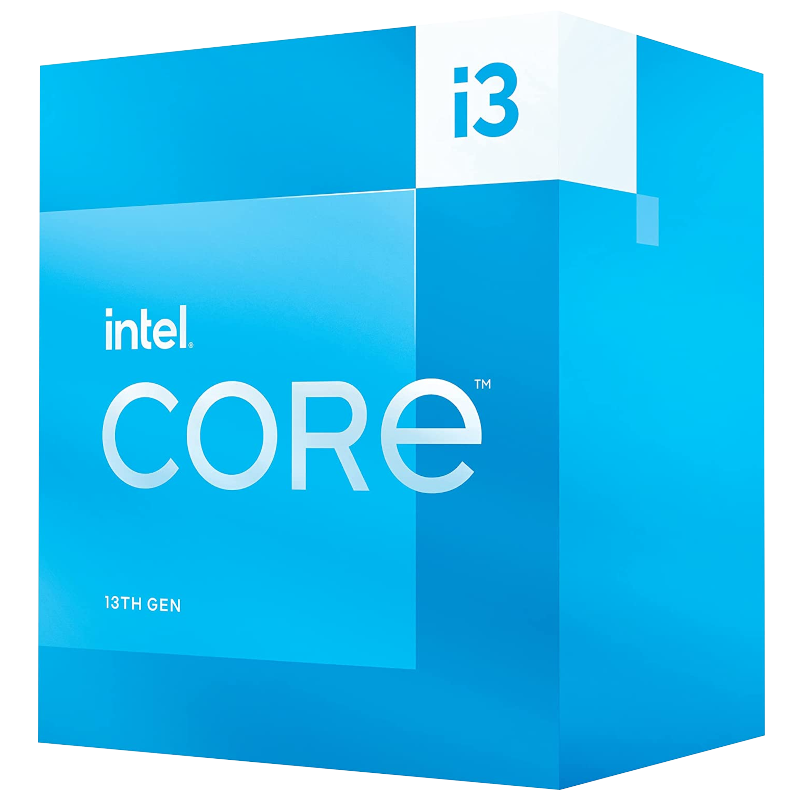
Intel Core i3-13100
The cheapest CPU doesn't mean it's the worst.
Intel's Core i3-13100 is the company's cheapest 13th Gen Raptor Lake CPU, with four cores and integrated graphics. It's perfect if you simply require a CPU to handle some light tasks such as running a server at home or a PC for the office.
- Brand
- Intel
- Cores
- 4
- Threads
- 8
- Architecture
- Raptor Lake
- Process
- Intel 7
- Socket
- LGA 1700
- Base Clock Speed
- 3.40 GHz
- Boost Clock Speed
- 4.50 GHz
- Cache
- 12 MB
- RAM
- DDR4-3200 / DDR5-4800
- PCIe
- 5.0
- Graphics
- Intel UHD Graphics 730
- TDP
- 60 W
- Power Draw
- 89 W
- Excellent budget CPU
- 4 P-cores with Hyperthreading
- Low TDP
- May struggle with multi-threaded tasks
The Intel Core i3-13100 is perfect for those who are looking to score a bargain with a budget-friendly chip. With an MSRP of just $144, it's incredibly affordable, especially when you consider this thing has four physical cores, making it decent for gaming. Coming with four P-cores means the Core i3-13100 lacks the E-cores as we've seen with a lot of other high-end 12th and 13th Gen chips. The lack of hybrid architecture allows this CPU to work independently of Intel's new Thread Director.
It is also a stellar gaming chip that easily outperforms a lot of AMD's competing processors. In fact, this particular chip is proven to be almost as good as the Intel Core i5-13600K and Ryzen 5 7600X in gaming, which is very impressive. With proper tuning, the Core i3-13100 is an excellent budget chip for lesser powerful systems that also happens to do well in gaming.
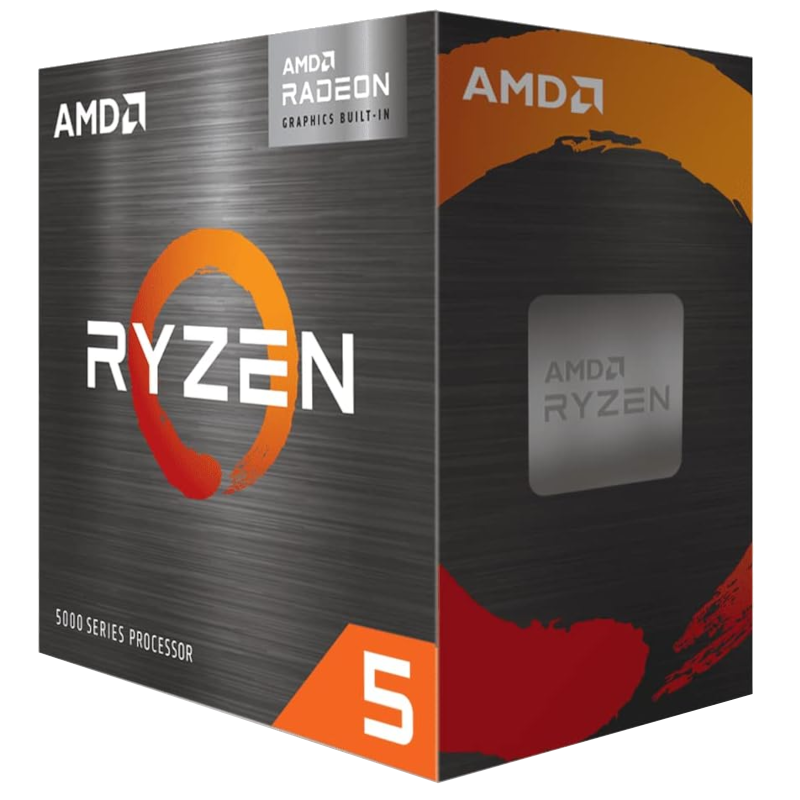
AMD Ryzen 5 5600G
The perfect processor for playing games without a GPU.
The AMD Ryzen 5 5600G is a great APU combining strong CPU performance with best-in-class integrated graphics.
- Brand
- AMD
- Cores
- 6
- Threads
- 12
- Architecture
- Zen 3
- Process
- TSMC 7nm
- Socket
- AM4
- Base Clock Speed
- 3.9 GHz
- Boost Clock Speed
- 4.4 GHz
- Cache
- 19 MB
- RAM
- DDR4-3200
- PCIe
- 3.0
- Graphics
- AMD Radeon Graphics
- TDP
- 45 - 65 W
- Excellent budget CPU
- Amazing integrated graphics
- Low TDP
- Older Zen 3 architecture
- PCIe 3.0 and no DDR5 RAM support
AMD's Ryzen 5 5600G with an integrated GPU is our pick for the best budget CPU on the market right now. It entered the market during the worst graphics card shortage in history but even now it's a seriously good choice. The Ryzen 5 5600G's Vega graphics will serve you well as long as you're willing to sacrifice visual fidelity in games, but you're still getting some of the best integrated graphics. The 6-core Ryzen 5 5600G comes with a 3.7 GHz base and a 4.4 GHz boost clock. It also features 16MB of L3 cache, and seven Radeon RX Vega CUs operating at 1.9 GHz.
It has a configurable TDP (cTDP) of 45W to 65W, although you can expect it to operate at 65W for the most part. It does it without producing too much heat, though. Compared to the more expensive Ryzen 5 7600, the 5600G gets the Radeon RX Vega graphics engine in exchange for 200 MHz of peak CPU boost clock and less than half the L3 cache. You also have to make peace with 24 lanes of PCIe 3.0 instead of PCIe 5.0, but you get support for the DDR4-3200 interface. The 5600G should be good for 720p gaming across a lot of titles, but your experience will be limited the more demanding the resolution or the title.
We've noticed this APU struggling to keep even at fairly low settings while working at 1080p resolution. Outside gaming though, it offers solid performance in standard desktop PC applications. The Ryzen 5 5600G gets brownie points for excellent power consumption and efficiency. The 5600G also shaves a lot of overhead costs with its bundled Wraith Stealth cooler and compatibility with AM4 motherboards.
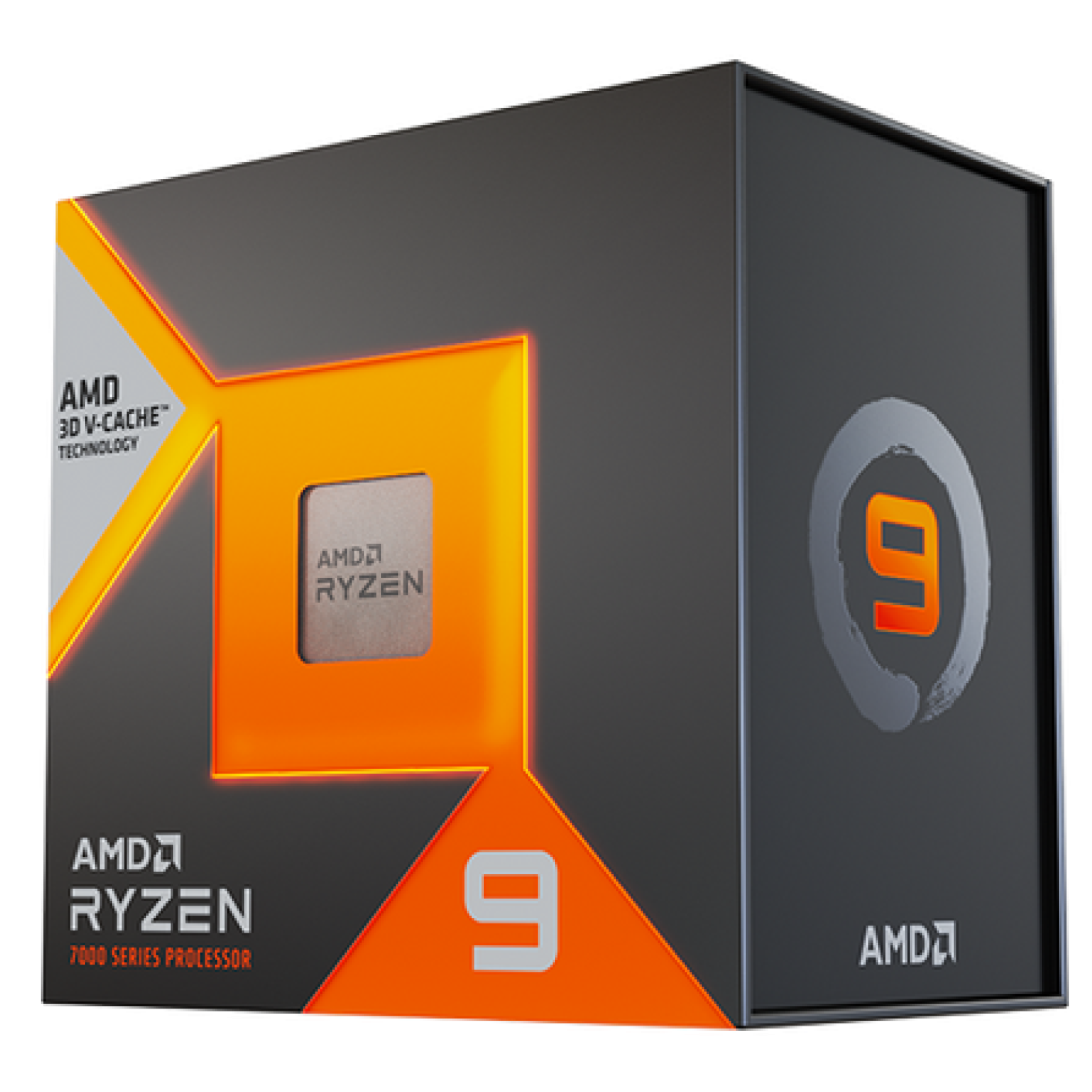
AMD Ryzen 9 7900X3D
The best CPU for playing games.
AMD's Ryzen 9 7900X3D is a high-end gaming and productivity CPU with 12 cores and 3D V-Cache. It's primarily for gaming but can also perform well in core-intensive workloads.
- Brand
- AMD
- Cores
- 12
- Threads
- 24
- Architecture
- Zen 4
- Process
- 5 nm
- Socket
- AM5
- Base Clock Speed
- 4.4 GHz
- Boost Clock Speed
- 5.6 GHz
- Cache
- 140 MB
- RAM
- DDR5-5200
- PCIe
- 5.0
- Graphics
- AMD Radeon Graphics
- TDP
- 120 W
- Designed for gaming
- Massive cache
- Relatively low TDP
- Pricey
- No DDR4 support
Picking the best CPU for gaming involves looking at core speeds above all else, as video games are still not designed to run well with 32 threads. Then there's the cache, which allows the CPU to store and access more data on the chip itself instead of relying on system memory. This is where the incredible AMD Ryzen 9 7900X3D comes into play. It's designed with gaming in mind thanks to its impressive cache configuration with 140MB of the stuff. For comparison, AMD's most capable Ryzen 9 7950X has just 81MB.
The AMD Ryzen 9 7900X3D is capable of hitting some high clock speeds with each core capable of hitting 5.6GHz by default. There are still 12 cores and 24 threads, providing plenty of performance headroom for running the latest PC games and background software. It's expensive, brand new, and has a TDP of 120W, which isn't too bad in the grand scheme of things, but pair this up with a capable AIO liquid cooler, and you'll have a monster gaming chip.
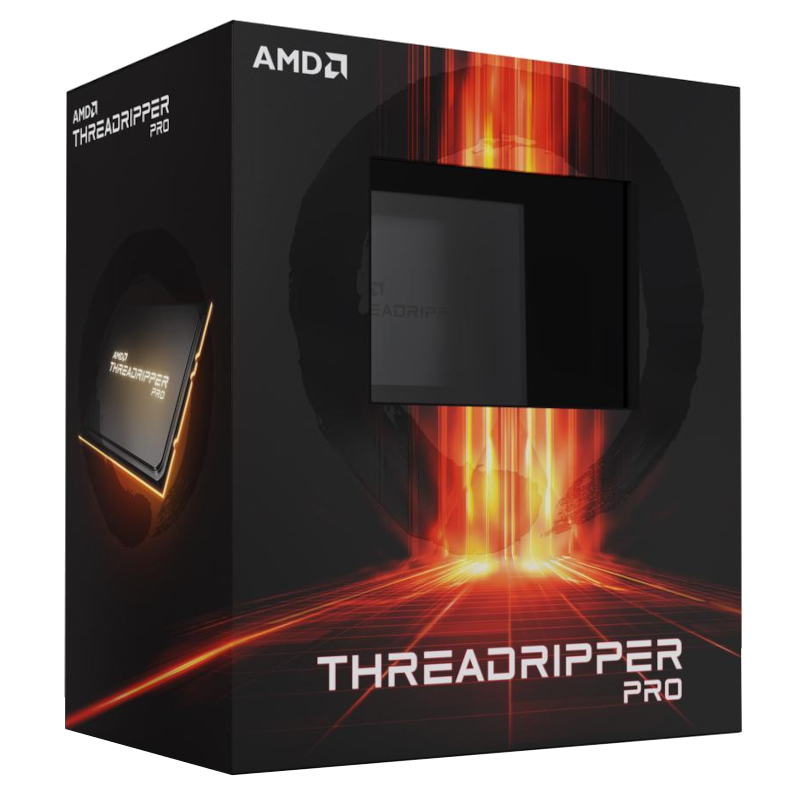
AMD Ryzen Threadripper Pro 5995WX
You likely don't need this processor.
The AMD Ryzen Threadripper Pro 5995WX with 64 cores is effectively an overclocked EPYC server CPU, making it the fastest workstation CPU in the world and ideal for any multi-core workload that needs to be finished as soon as possible.
- Brand
- AMD
- Cores
- 64
- Threads
- 128
- Architecture
- Zen 3
- Process
- TSMC 7nm
- Socket
- sWRX8
- Base Clock Speed
- 2.7 GHz
- Boost Clock Speed
- 4.5 GHz
- Cache
- 292 MB
- RAM
- DDR4-3200
- PCIe
- 4.0
- TDP
- 280 W
- Insane performance
- Massive cache
- Relatively low TDP
- Overkill for most people
- Incredibly expensive
Now it's time for the big one. The incredibly expensive and powerful AMD Ryzen Threadripper Pro 5995WX is about as good as you can get for a CPU. If you need the absolute most performance available and need a workstation that can handle big data applications, look no further than this flagship AMD processor. It may be Zen 3 and not the newer Zen 4, but you'll quickly find out why it's still worth buying. First, let's talk cores and threads. It has 64 cores and 128 threads, which is an incredible configuration for heavy workloads.
Then there's support for up to 2TB (2,048GB) of system memory across eight memory channels. To put that into perspective, most consumer-grade CPUs only support up to 128GB. Finally, we've got 128 PCIe 4.0 lanes, making the Ryzen Threadripper Pro 5995WX perfect for a highly specialized PC build. This CPU alone is capable of matching or exceeding dual-socket server deployments, which makes the asking price all the more appealing if you truly require this much performance. Gaming is also within the reach of this processor, however, we don't recommend this CPU just for gaming alone.
Choosing the best CPU
Figuring out what you're going to do with your PC and allocating a budget for it is a good place to start a PC build. A CPU is not the only core component affecting the performance, but it can certainly hinder the overall output of the rest of the system. A good general all-rounder though for all needs is either the Intel Core i5-13600K or the AMD Ryzen 5 7600X.
Both are "mid-range" CPUs that don't cost a fortune and they're also able to deliver some serious performance that will make them useable for years to come. Content creators, enthusiasts, and workstation buyers are equally well-supported, with Intel's Core i9-13900K a definite stand-out should you require even more performance.

Intel Core i5-13600K
The Intel Core i5-13600K is the best value processor from Intel's 13th Gen family of chips. It strikes a good balance between performance and cost, allowing almost anyone to build a powerful system without destroying the tightest of budgets.
What is the best CPU?
Picking the best CPU largely comes down to the socket type your selected motherboard has, as well as how much you're willing to spend. AMD and Intel are the two players in the CPU space for desktop computers, yet there are countless processors across numerous generations that could be considered. This is where choosing the right one can prove daunting to new system builders.
Should you be upgrading an existing system, your options will be limited to the socket and chipset on your motherboard. When shopping around for new PC parts for a complete build, the processor can be selected prior to the motherboard. Regardless, the socket of the motherboard and processor need to match. For example, the Intel Core i5-13600K supports LGA 1700 and the AMD Ryzen 9 7950X only works with AM5.
AMD and Intel at least attempt to make it easy to decipher their respective processor catalogs. The first digit of the four-figure model number denotes the generation. The Core i9-12900K is a 12th Gen Intel processor and the Ryzen 5 7600X is a 7th Gen AMD processor. The best motherboards allow for a processor to be overclocked, providing considerable boosts in performance. Not all processors allow for overclocking, and we'll note this for each recommendation.
A core is what handles the instructions sent to the CPU. The more cores present on the chip, the more instructions can be processed simultaneously. Then there are threads, which share the resources of a core, effectively splitting it up into multiple processing units. Depending on what you plan on doing with the PC, even the more affordable processors have multiple cores and threads.
The speed of a processor is also important and is measured in gigahertz (GHz). It represents how many pulses per second a CPU is able to handle. The higher these speeds, the more instructions can be processed each second. Boost and burst speeds are what a processor is able to hit during heavy loads and in short durations, respectively.
